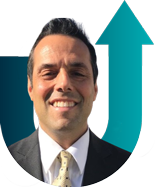How To Improve Time Management
Time and money are two of the most precious resources of all. Money is important, of course, and many of us spend a lot of time developing skills, building businesses and building careers with the expectation that we will make more money from our efforts. This makes sense, yet ultimately, time becomes our scarcest resource – not money.
We can always try to make more money if we’re willing to work harder and find creative ways to earn. However, we can never get time back – as once time is spent, it can never be recovered. Time is the currency of life, and we never really know for sure how much time we have remaining. With money, we can look at our bank balances and investment accounts and quickly get an idea of how much we have. But time?

We can only assume that we will live a certain number of years – but there is no guarantee. Therefore, as we get older and our lives get busier – and shorter – how we choose to allocate and manage our time becomes ever more important. Prioritizing our days through effective time management skills is essential to living not only a productive life, but also for designing the optimal life for ourselves.
Fortunately, there is some overlap between developing effective time management skills and the implementation of sound personal finance skills and budgeting. Let’s take a closer look.
Table Of Contents
Budget Your Time
When it comes to personal finances, we should all have a clear, written, realistic budget that delineates all forms of monthly cash flow and expenses. One of the hallmarks of the 50/30/20 budget is the allocation of that final 20% to debt repayment and savings.
While 50% of monthly inflows are allocated to necessary expenses (housing, transportation, food, utility bills etc.) and 30% to “wants” (restaurant meals, entertainment, high end clothing etc.), it is the “wants” category that always must take the hit when necessary expenses exceed 50% of disposable income. In other words, it is mandatory to pay yourself first – to allocate the full percentages toward savings, debt repayment and necessities before using any remaining funds on “wants.”
Well, a similar principle applies to time management. A useful exercise to conduct involves writing down on an index card the night before all scheduled appointments and things to do on the left side of the card, coupled with the names of people you need to contact and are expecting to hear back from on the
ABC
Monitor Your Time
Just as it becomes imperative to track how much money you allocate toward various expenses in order to guard against reckless spending, it becomes equally important to guard against frittering away precious time on non-essential activities that add little value to your life.
There is a fine line to draw at times, but just as with most things in life, moderation is often the key with things such as social media. If you’re already into Facebook and Instagram, for example, and you derive pleasure from them on a daily basis, it might not make sense to give them up completely.
However, make no mistake, that hour or more per day spent on these sites will add up quickly and it may serve you to find a better balance between time spent on social media and other activities more worthy of your time. If you were to spend one week with pen and paper, making note of how you are spending time on a half-hourly basis from the hours of 8am to 8pm, you may become shocked at the results.
If you force yourself to write down every activity performed – especially those technology related ones (watching YouTube, playing phone games, checking your Twitter feed) you may discover that you are frittering away too much time on activities that are of lower priority when it comes to improving your productivity and the overall quality of your life. If monitoring your time using pen and paper isn’t your thing, apps such as RescueTime and Toggl can prove useful for this exercise.
Automatic Payments
In this day and age, automatic payments are everywhere. We often receive our paychecks via direct deposit and then have a number of bills set up for automatic payment – including credit card bills, utility bills, cell phone, internet and other similar monthly recurring charges.
We can even automate withdrawals from our checking account to our savings account or 401k. Fact is, automating our finances helps keep things organized – it saves time and it saves money by avoiding potential late fees. In a similar manner, we can look to set up “automatic payments” for any recurring and potentially time consuming tasks.
It makes sense to create e-mail templates for mass e-mail projects or recurring e-mails, and to utilize automatic reminders from within a calendar app for various recurring work tasks. Anything that repeats on a regular basis, automate. Keep your time clear for greater opportunities and higher priorities.


The Benefits of Time Management
The benefits of effective time management can become far-reaching and profound. Effective prioritization leads to better results, more productivity, a greater sense of control over our professional and personal lives, and a greater overall sense of well-being.
When we excel at time management, we are making the most of our limited time, and by association, our finite lives. Wasting time is a vice – and one reserved for the young – or those who simply haven’t yet begun to understood time’s preciousness.
Performing the exercises toward improving time management might not come automatically for you in the beginning. However, when we learn to manage time effectively, our days actually expand – we have more time to do the things we enjoy with the people we love.
Gaining this freedom, in turn, leads to greater life satisfaction while reducing feelings of overwhelm and stress. So, what’s stopping you from improving your time management?
Are you in debt? we can help

About The Author: Steven Brachman
Steven Brachman is the lead content provider for UnitedSettlement.com. A graduate of the University of Michigan with a B.A. in Economics, Steven spent several years as a registered representative in the securities industry before moving on to equity research and trading. He is also an experienced test-prep professional and admissions consultant to aspiring graduate business school students. In his spare time, Steven enjoys writing, reading, travel, music and fantasy sports.
Get Debt Relief
Speak with licensed debt specialists dedicated to guiding you toward financial stability every step of the way.

Ready To Get Started?
See if you qualify for debt relief. Get a Free savings estimate to see how quickly you can be debt free.
Embrace financial freedom with our tailored solutions, expert guidance, and unwavering commitment to your success.
Experienced Professionals
Our experienced team has helped thousands of clients successfully eliminate debt and regain financial freedom.
Customized Solutions
We know every financial situation is different, so we design personalized debt relief plans to fit your specific needs and goals.
High Success Rate
Our proven debt relief strategies deliver real results. With a strong track record of success, we help clients achieve lasting financial stability.
Confidential Consultation
Your privacy is our priority. All debt relief consultations are 100% confidential and handled with the highest level of discretion.
Explore other blogs











